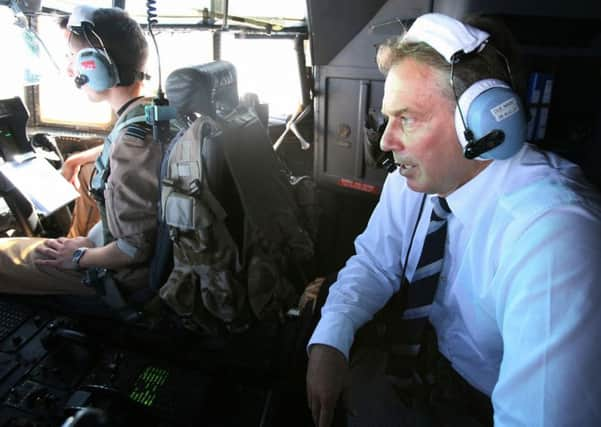Andrew Vine: Chilcot's duty to those scarred by Iraq


The knock on the door had come as she was preparing for bed wondering what her husband was doing, and praying that he was safe, as she had every hour of every day since he’d kissed her goodbye.
A few weeks later, I listened as she told me of how the news of his death had been broken, and how her own life felt like it was over too at that moment.
Advertisement
Hide AdAdvertisement
Hide AdIt was heart-wrenching to hear, and her haunted look spoke volumes. She knew what had happened to him where and when. Tomorrow, after a wait of 13 years, she will finally know for certain why.
But the disgracefully-delayed publication of the Chilcot report into the Iraq war of 2003 may only serve to reinforce the anger that grew in that young widow after the grief.
She was far from alone in that. For her, as for the loved ones of all the 179 British service personnel who died in Iraq, the sense of bravery betrayed by connivance, incompetence and parsimony has been a burning injustice that they have borne for more than a decade.
Even in the weeks after her husband’s death, she was starting to learn from his comrades a disturbing story that made his loss even harder to bear.
Advertisement
Hide AdAdvertisement
Hide AdIt was a story of being inadequately equipped and poorly commanded. Of tactics being made up on the hoof, and a lack of planning.
That was the reality on the ground, where roadside bombs tore apart poorly-armoured vehicles that became known as “coffins on wheels” to the men who had to go out on patrol in them.
A critical shortage of body armour that could have saved lives was a deadly reality too. The reality at the highest levels of the government was slower to emerge.
Exaggerated – perhaps even fabricated – intelligence, untrue claims of weapons of mass destruction threatening British interests, a secret deal between a Prime Minister and US president to wage war come what may, and an absence of planning for the aftermath served only to deepen the families’ sense of betrayal.
Advertisement
Hide AdAdvertisement
Hide AdIf Sir John Chilcot and his inquiry team are not to go down in history as the authors of one of the most despicable whitewashes, all this must be laid bare tomorrow.
This must be one of the strangest, most predictable official reports ever published. For while the inquiry has crawled along excruciatingly slowly for more than six years at a cost expected to top £10m, the story of the Iraq catastrophe has emerged in almost forensic detail. Unlike the Hillsborough disaster, where a painstaking inquiry followed by a lengthy inquest was necessary to finally nail lies and cover-ups, the key facts about the invasion of Iraq and what followed have long been in the public domain.
They have not been convincingly challenged by the central players, and enough senior figures close to where decisions were made – perhaps troubled by conscience – have provided confirmation.
The most closely-read passages of the Chilcot report will inevitably be those dealing with the conduct of Tony Blair.
Advertisement
Hide AdAdvertisement
Hide AdTo the families of the dead and injured, he is the man ultimately responsible, so in thrall to the then US president George W Bush and so zealous in his self-righteousness that he misled Parliament and the British people.
The consequent shredding of his reputation and image, and the fact that everything else he did will be forever overshadowed by Iraq, are of scant consolation to the bereaved.
He is, in the eyes of many, disgraced, but the families need the stamp of officialdom on that verdict that only Chilcot can deliver. They also need official acknowledgement that their loved ones were let down, so that an apology can be made. Just as David Cameron apologised in Parliament for the events at Hillsborough that happened long before he came to office, so he might find himself doing so again over Iraq.
A grave duty rests on the shoulders of Sir John Chilcot tomorrow, to present a definitive reckoning of the faults, failings and responsibilities for a disastrous folly.
Advertisement
Hide AdAdvertisement
Hide AdThe suffering of the service personnel killed or injured, and the grief of those left behind to mourn them demands the unvarnished truth, whoever is shamed by it, whether in the ranks of politicians, intelligence officers or military commanders.
The families who have waited so long for answers deserve no less.